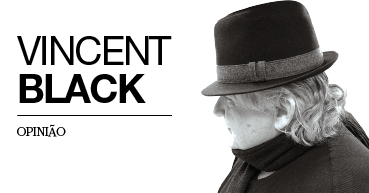One of the last horseshoe programs in Canada faces demise
It’s a chilly, sunny afternoon at Twin Oaks Farm in south Richmond, B.C., and Jeri Sparshu is putting away his tools while a tall horse named Pedro keeps an eye on him from a stall.
Sparshu, 42, has just finished working on Pedro — taking off his horseshoes, trimming his hooves, and putting his horseshoes back on.
Horseshoers, formally known as farriers, practice one of the oldest trades in the world.
“Horses have been a part of humanity’s conquests and domestication since we started working with them,” Sparshu says. “There’s evidence of [horseshoeing] being up to 3,000 years old.”
Traditionally, farriers learn through apprenticeships. At the Cloverdale campus of Kwantlen Polytechnic University, they can kickstart their career at one of Canada’s two accredited certificate programs.
But Kwantlen says it’s cutting off registration for the farrier program because of declining enrolment. The school has graduated 50 people in the last five years, and is reviewing its long-term viability as part of the school’s budgeting process.
“We’re not taking anybody new until we have an opportunity to see how we can do this and what we can do for the future,” said KPU provost Sal Ferreras.
Farriers like Sparshu say they’re worried about the program getting cut. Sparshu didn’t attend Kwantlen but knows a lot of farriers in the Lower Mainland who did.
The Lower Mainland has one of the biggest concentrations of horses in Canada, Sparshu says, and many of the qualified farriers who serve them were trained at Kwantlen.
Sparshu says the university’s certificate offers important fundamentals like horse anatomy that can’t be learned through an apprenticeship.
The university’s pending decision also comes at a time when farriers are trying to establish their work as a formalized trade in order to ensure horses are being cared for by trained professionals.
Cutting the program, farriers say, puts that process at risk. “For this program to potentially be shut down is is a bit of a shock,” Sparshu said.
Not an easy trade
Pedro is one of nearly 200 horses Sparshu and his wife work on about every six weeks in the Lower Mainland and Vancouver Island. Most of the horses are the property of wealthy owners, Sparshu says, who ride them for pleasure or competition.
Sparshu keeps his entire business in the back of his truck — a pop-up workshop with horseshoes and blacksmithing tools. He estimates there are of about 150 other farriers in the Lower Mainland.
A hard-working farrier can net up to $80,000 per year, Sparshu says, adding that there’s plenty of work to go around. But it takes a lot of hard work and years of experience to make it to that point.
Sparshu says many who graduate from a farrier program don’t last long in the field.
“It’s not necessarily an easy trade to get into,” he said.
Kwantlen’s farrier program can only accommodate 12 students per term. Provost Ferreras says the last intake, in January, only had four students.
Many of the school’s programs are expensive because students need to access equipment, Ferreras says, and the school needs to balance rising costs with stagnant government support.
‘A big black eye’
Ferreras says he just recently learned that the Western Canadian Farriers Association was in the process of becoming a formalized trade. The change would mean the program’s funding would come from the organization that governs trades in B.C. instead of the Ministry of Advanced Education.
“That would be a welcome change in status,” Ferreras said.
The association’s president, Russell Floyd, says animal care advocates, the B.C. Animal Owners Association, approached him about formalizing the trade to ensure minimal education standards for horseshoeing.
So far, the association has met with the Minister of Agriculture, the B.C. SPCA, the B.C. Horse Council and the B.C. College of Veterinarians.
The process is still in its early stages, he says, and cancelling the Kwantlen program would put it at risk.
“For us moving forward, it’s a big black eye,” Floyd said.








Redes Sociais - Comentários